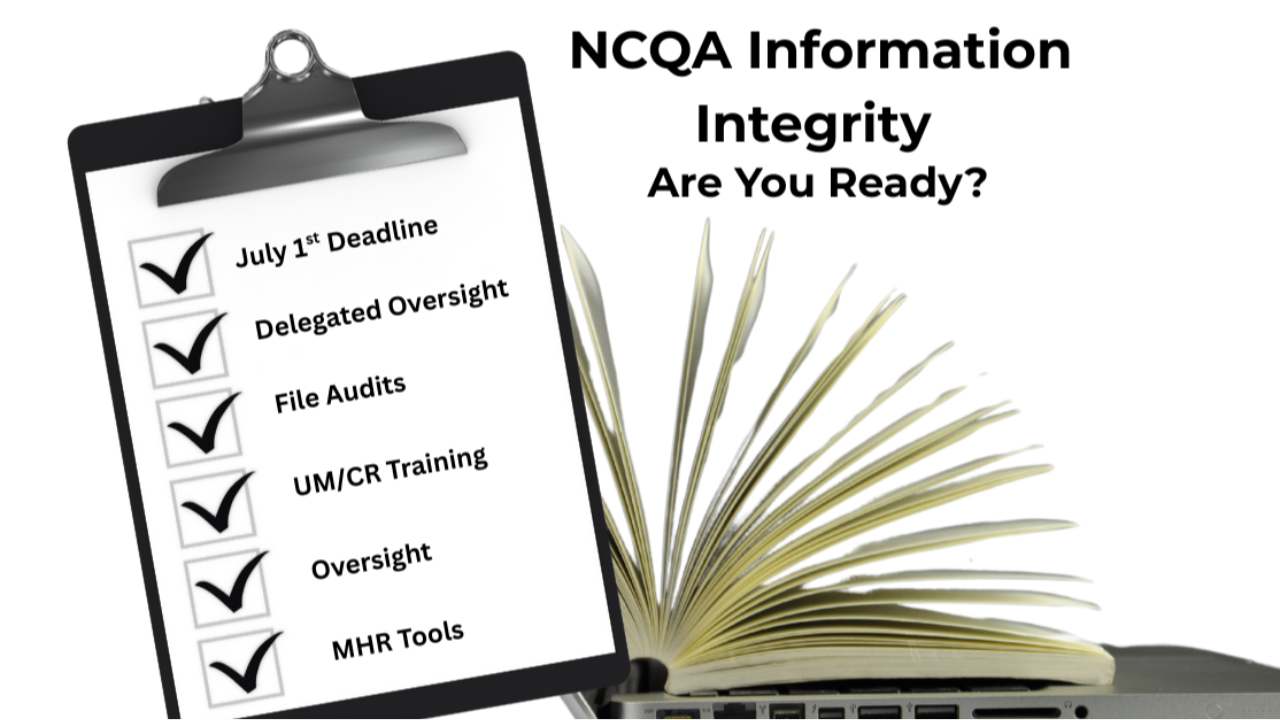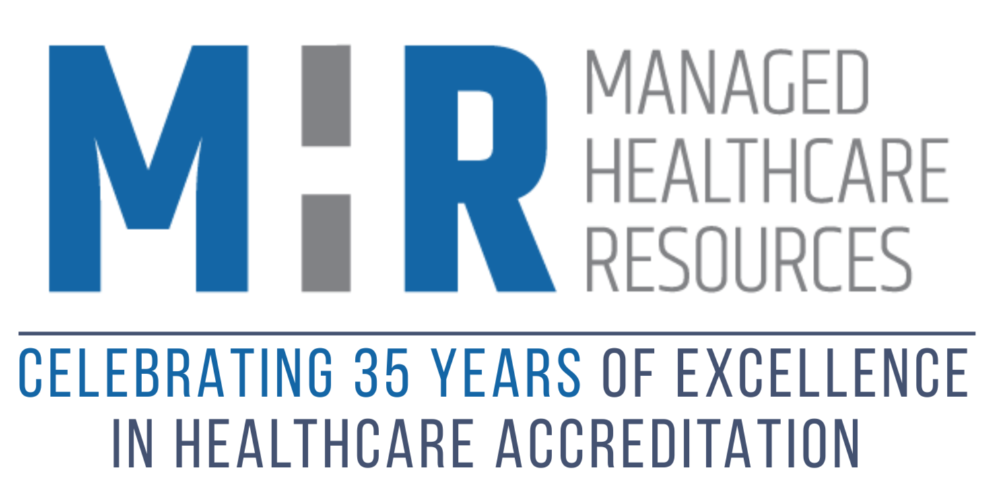
By Nancy Ross Bell, RN
Estimated time to read: 3 minutes
If you haven’t reviewed your Utilization Management (UM) and Credentialing (CR) Delegation Agreements yet, now is the time. Big changes are coming, and the deadline for July 1, 2025, is your cue to act. MHR is here to help you prepare and stay compliant.
What You Need to Do by July 1, 2025
If you have existing UM/CR Delegation Agreements, your next steps depend on whether those agreements align with the 2022–2024 NCQA standards.
- Agreements that lack system controls language under the 2022–2024 standards must be updated or formally amended before July 1, 2025, to meet all Information Integrity requirements.
- Agreements that already include system control language addressing UM 13A/CR 9A Factor 4 under the current standards don’t need to be updated for that factor. However, you must update or issue a formal notification with a mutually agreed-upon effective date for:
- UM 13A/CR 9A Factor 2 to meet the expanded 2025 scope as defined in Factor 1 for UM 12A, UM 12B, and CR 8A.
- In addition, all delegation agreements for UM and CR must be updated to address the new information integrity training requirement.
- UM 13A/CR 9A Factor 2 to meet the expanded 2025 scope as defined in Factor 1 for UM 12A, UM 12B, and CR 8A.
- New Delegation Agreements? Use the 2025 Standards. If you’re drafting new Delegation Agreements for activities launching before July 1, 2025, make sure they align with the 2025 standards right from the start.
- Be sure to link each responsibility in the Agreement directly to the relevant NCQA standard. Avoid overlooking where the Information Integrity requirements might apply, such as when working with new provider groups, delegating to new Credentialing Verification Organizations, or introducing entities responsible for issuing denials and appeals.
Follow the links below to explore the MHR blogs for more detailed information on information integrity and delegation agreements.
Avoiding Broken Links in Your NCQA Delegation Agreements.
Don’t Skip the Information Integrity Audits
Annual Information Integrity audits of denials, appeals, and credentialing files are required, either by the delegated entity or internally by the organization. If any inappropriate documentation is found, a conclusion must be drawn for each file, followed by a qualitative analysis in your annual audit report.
If corrective actions are implemented, a follow-up audit must take place within three to six months from the date of the audit, not the report. This follow-up must include both quantitative and qualitative analysis to measure the effectiveness of the actions taken.
Training: Not Optional—It’s Essential
As noted above, all UM/CR Delegation Agreements or formal notices to the delegate must include the requirement for annual Information Integrity training. This training should cover how to handle and avoid inappropriate documentation, and how your organization audits staff for proper reporting and documentation practices.
During the annual oversight audit, your organization will review evidence that training was conducted in the prior year to assess compliance with UM 13C Factor 3 and UM 9C Factor 3.
Delegation Oversight: Stay in Control
Delegation oversight should not be ignored. Whether oversight is conducted by a centralized team like Compliance or Quality, or by functional departments such as UM or CR, your organization should have a Delegated Oversight Committee that reports through your Quality Committee. Be sure that Information Integrity is a part of each delegate’s review, as NCQA requires evidence (e.g., report, meeting minutes) that it reviewed and evaluated the delegate’s information integrity findings.
Automatic Credit – Know When It Applies
You may be eligible for automatic credit if all your delegates are NCQA-Accredited or Certified in Health Plan, MBHO, UM, CR, or CVO. Auto-credit eligibility for the new information integrity standard will be based on the date of the delegate’s accreditation or certification; the accreditation must be under the 2025 standards (or later). It is important to verify each element carefully, as some may be considered Not Applicable under specific conditions.
Your Call to Action!
Train your team. Delegation training is essential for more than just accreditation leads. Legal, compliance, IT, contracting, and even financial analysts will benefit from understanding how compliant delegation reduces risk and saves costs.
Sign up for Delegation Training. Visit the MHR Training page, choose Delegation, and an MHR Consultant will follow up to schedule your session. One flat rate includes all attendees from your organization.
Get the tools and templates you need. Ask your MHR Consultant about the NCQA Health Plan Accreditation Delegation Suite and File Audit tools that best support your goals.
Stay ahead of the July 1 deadline. Your compliance—and your NCQA accreditation—depend on it.
Not an MHR client yet? We would love to speak with you. Schedule a Discovery call through our Contact page, and read about How We Work and the types of Organizations we guide to NCQA Accreditation.
MHR implements a thorough quality review process for all blogs. This blog features insights from Deborah Warren, RN, and Kim Carpenter Petit. Learn more about MHR’s Independent Consultants at managedhealthcareresources.com/AboutOurConsultants.



